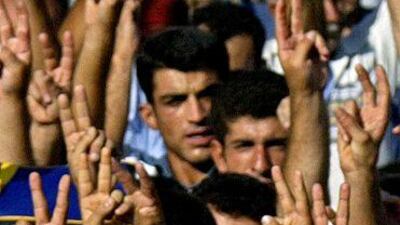ISTANBUL // A 47-year-old public library worker from western Turkey may go down in history as the man who forced his country to rethink the relationship between the state and its citizens. This week, in a case named "Sinan Isik versus Turkey", the European Court of Human Rights in Strasbourg ruled that Turkey violated the rights of Mr Isik by forcing him to decide whether or not to disclose his religious conviction on the official Turkish identity card. As a member of the Council of Europe, Turkey has to abide by the court's verdicts.
"It is a very important step for modern and democratic people in Turkey," Kazim Genc, Mr Isik's lawyer, said in a telephone interview this week. After the ruling, Turkey will be obliged to change the design of identity cards and remove the current box indicating the religion of a citizen, Mr Genc said. The case of Mr Isik, an employee of a public library in the western city of Izmir, is part of a development of democratisation in Turkey that has strengthened the rights of the individual in relation to the state, several observers said.
As a candidate for EU membership, Turkey has passed several reforms widening individual rights, but the latest verdict from Strasbourg is pushing that process further, they said. "If the decision is implemented, it will be a big step in the relationship between state and citizen," said Husnu Ondul, a human-rights campaigner. "It is important that people are no longer obliged to tell the state what they believe in."
Turkey used to be a country where modernisation had been conducted "from the top down" and where the state had the right "to say who is who", Mehmet Altan, a commentator, told the Haberturk newspaper in an interview. Now Turkey was seeing the emergence of a new relation between state and individual, he said. Mr Genc also stressed a removal of the "religion box" on identity cards would be an official statement that the Turkish state is taking a step back from interfering in the private lives of its citizens. "What business does the state have with religion anyway?"
The Strasbourg decision also concerns the special Turkish definition of secularism. While the term is generally defined as a separation of state and religion in the West, the Turkish form of secularism stresses the need for state control over religion, especially over Islam, which was seen as a reactionary force by Mustafa Kemal Ataturk, modern Turkey's founder. Now Strasbourg says the Turkish state has to keep more of a distance, Mr Ondul said. "The court has told the state to be objective and not to pressure people." Mr Isik himself called the decision a "silent revolution". The Turkish state "has to be secular but at the same time respect humanity", he told the Hurriyet newspaper.
Mr Isik is a member of the Alevi community, followers of a liberal strand of Islam that is sometimes regarded as a heretic sect by the Sunni majority in Turkey. The Alevis, estimated at between 10 and 15 million people, or roughly 14 per cent to 20 per cent of Turkey's population, have been demanding official recognition by Ankara for years. Currently, Alevi meeting houses are not categorised as places of worship, but as cultural centres. Following a complaint by another Alevi, the Strasbourg court told Ankara three years ago that Alevi children must not be forced to take part in Sunni religious lessons in state schools. The decision has yet to be implemented.
In 2004, Mr Isik asked Turkish authorities to be allowed to have "Alevi" instead of "Islam" written on his identity card. When Turkish courts turned him down, arguing that Alevism did not constitute an independent religion, Mr Isik turned to Strasbourg in 2005. One year later, a new law said Turkish citizens can leave blank the "religion box" on his identity card, but the court said that was not enough.
"The fact of having to apply to the authorities in writing for the deletion of the religion in civil registers and on identity cards, and similarly, the mere fact of having an identity card with the 'religion' box left blank, obliged the individual to disclose, against his or her will, information concerning an aspect of his or her religion or most personal convictions," the court said in a statement.
"That was undoubtedly at odds with the principle of freedom not to manifest one's religion or belief." The court ruled that Turkey had violated Mr Isik's human rights. Mr Genc said the Turkish state now had three months to decide whether to appeal against the ruling. Such an appeal would be heard by a Grand Chamber of the Strasbourg court, made up by 17 judges, instead of the panel of seven judges that handed down the verdict in Mr Isik's case.
Referring to a current initiative by the government in Ankara, known as "Democratic Opening", to strengthen democratic rights, Mr Genc said an appeal would contradict the promise to widen democracy. "If there is a Democratic Opening, they should not appeal," he said. Instead, Ankara will have to change laws in order to get rid of the "religion box", he added. The Turkish prime minister, Recep Tayyip Erdogan, indicated his government is likely to follow the ruling of the Strasbourg court. "I do not see the decision as abnormal," Mr Erdogan told reporters in Ankara.
@Email:tseibert@thenational.ae

